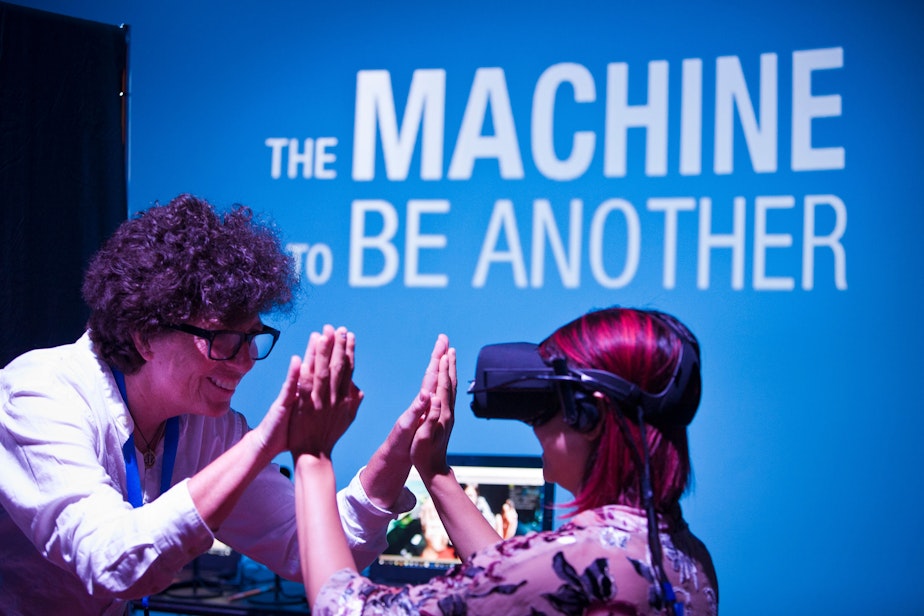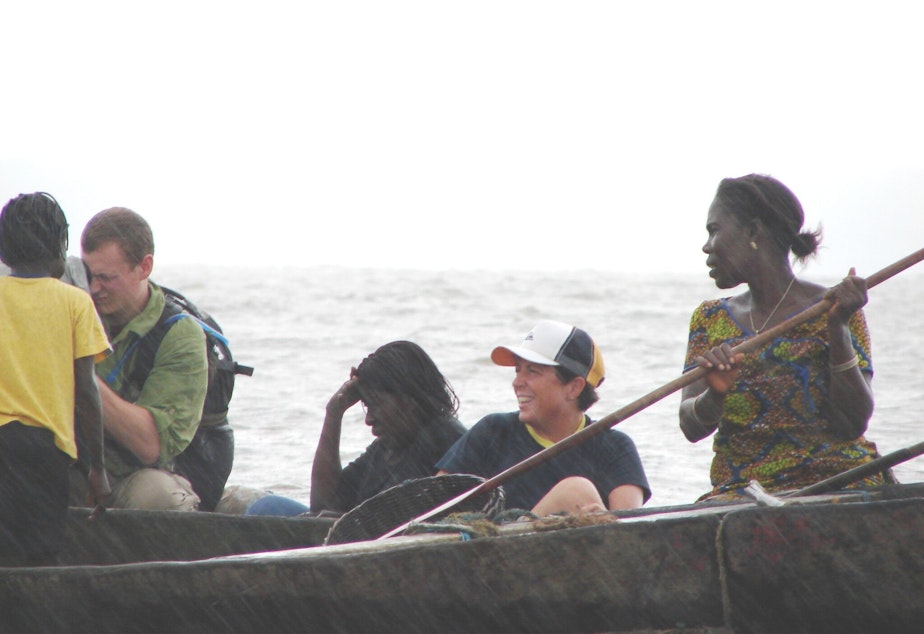This documentarian makes you walk a mile in someone else’s shoes

Can a documentary inspire social change? Filmmaker Sandy Cioffi uses virtual reality to evoke empathy — not sorrow — from viewers.
Cioffi is a Seattle-based filmmaker. Early in her career, she knew her purpose: to create change in her communities with her work.
She started in the '80s with the HIV/AIDS epidemic.
“It was my friends,” Cioffi said. “It was living in an environment where gay men were made to feel as though they deserved to die. The power of any individual human story at a time like that is something I was very drawn to."
Cioffi’s experiences continually motivated her. She made all kinds of documentaries spreading awareness about different issues.
But as Cioffi kept creating traditional, two-dimensional films (or "flatties," as she calls them), she felt limited by the notion of film as something that is framed safely in front of you.
Sponsored
“When it comes to non-fiction, I think we’ve gotten into a moment where it’s time to kind of let go of that style,” she said.
Because when you watch a flattie, there’s distance between you and the story. Your eyes follow the action, but you’re not a part of it.
Cioffi needed a new medium to tell her stories. With that goal in mind, she attended a filmmaker’s conference. There, Cioffi got her first taste of virtual reality — or VR — from a production called Project Syria.
Donning a VR headset, she was suddenly on a street corner in Aleppo, Syria, immersed in the sights and sounds of a war zone.
Sponsored
“To explain to you on the radio what it’s like to feel the sensation of a cluster bomb going off behind you, versus watching it in a movie, would be like trying to convince someone on the radio that it’s fun to make out with people,” she said. "It is one of the more materially seismic shifts in an experience I had ever had in my life.”
It struck Cioffi that the 10 minute VR experience broke through what her 93 minute film hadn’t in creating emotional resonance.
In this digital age, Cioffi saw that VR and immersive media have the potential to create human connections in ways we’ve never seen before.
"Part of what this new technology provides is a bit more acceleration toward pushing you to get outside of that framing of other people. Instead, just get inside being them for a while. Stop making assumptions about it from your own point of view. Just be them for a day,” she said.
Sponsored
Cioffi’s first urge was to spread this experience. She wanted to get community workers, law makers and citizens to feel what she did.
Cioffi created events like SIFFX and TWIST360º for this purpose. While continuing to share this new medium, Cioffi also creates her own immersive documentaries.
Her objective: To foster empathy in community members.
“What’s different to me is that I see people engaging with the notion of what it means to be somebody else,” Cioffi said.
“Rather than thinking I would make a project that millions of people would see, it’s more like one person at a time. One person is going to experience this thing. They’re going to do something with it I can’t imagine. I’m just certain of it.”
Sponsored
Throughout her decades in media, Cioffi has been looking for a way to powerfully inspire change in society. And she’s found it.
This story was created in KUOW's RadioActive’s Advanced Producers Workshop, with production support from Mary Heisey. Edited by Marcie Sillman.
Find RadioActive on Facebook, Twitter and Instagram, and on the RadioActive podcast.
Support for KUOW's RadioActive comes from the Bill & Melinda Gates Foundation Discovery Center.




